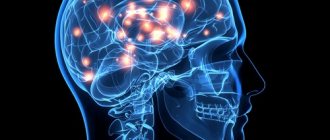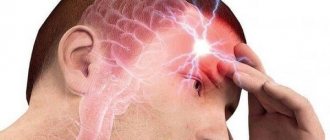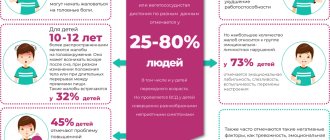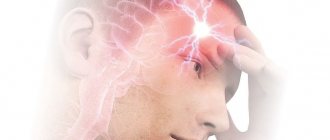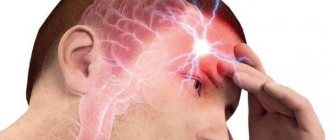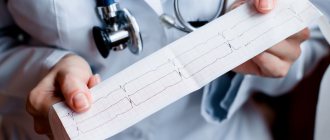Just a couple of decades ago, complaining about high blood pressure was the lot of older and elderly people. Today, arterial hypertension has become younger, like many diseases, due to the costs of today's lifestyle and level of workload. Increasingly, the diagnosis of hypertension is being made to young people 20-30 years old. The vast majority of cases of persistent increases in blood pressure are caused by one or another pathology of the cardiovascular system. In approximately 5-10%, the reason lies in the development of complications due to renal or endocrine diseases. A blood pressure of 120/80 mmH is considered normal at a young age. rt. Art. or slightly lower (of course, individually determined deviations from the norm are possible). Blood pressure readings up to 140/90 are considered a prehypertensive state, 140/90 – 160/100 indicate stage 1 hypertension, and above 160/100 indicate stage 2 hypertension. In this case, we are not talking about infrequent episodic rises, for example, against the background of emotional stress.
The problem of hypertension at a young age has two negative aspects. First, in young patients, arterial hypertension may not produce significant symptoms for a long time; second, even in the presence of clearly defined signs of hypertension, a young person quite often ignores the need to visit a doctor and long-term constant treatment and the need to maintain a healthy lifestyle.
Maternal line
My mother-in-law has suffered from severe hypertension all her life.
Could this disease be passed on to our son, her grandson? Vasily, Mytishchi
– One of the common causes of high blood pressure in adolescents is hereditary, when the mother or maternal grandmother suffers from hypertension. If you have these problems in your family, try to protect your child:
- monitor his weight, excess weight is a very significant factor in increasing blood pressure;
- do not feed him fatty foods and sweet pastries in his diet
- Vegetable dishes should predominate;
- limit your salt intake: no more than 5 g per day, and this includes what is contained in canned food and sausages, and there is a lot of it;
- offer him more foods containing potassium - dried apricots, prunes, baked potatoes, leafy greens;
- the child should not be overtired either mentally or physically, so it is necessary to follow a daily routine - go to bed on time, walk a lot;
- Small physical exercises, mostly dynamic and aerobic, are useful, preferably in the fresh air - jogging, swimming, skiing... And it is better to refuse static loads - weightlifting, wrestling;
- alcohol and smoking also cause high blood pressure; explain to the teenager that he should not give in to these bad habits.
Hypertension in children and adolescents
It is generally accepted that high blood pressure is a problem for older people. However, today this disease has become “younger” and occurs even in children and adolescents.
What do the numbers say?
According to statistics, primary arterial hypertension (AH) occurs in 1-18% of Russian schoolchildren. The peak detection of hypertension in young patients occurs during adolescence. And in 17-26% of them, the problem of high blood pressure progresses into the formation of hypertension.
In childhood, primary arterial hypertension is more common, in which high blood pressure is not a symptom of another disease, but increases without an obvious reason for its occurrence.
Read material on the topic:
“Not a disease, but a symptom”: what is symptomatic arterial hypertension?
Why might blood pressure change?
Stress, hereditary factors, excess weight and bad habits in adolescence, vegetative dystonia syndrome and a sedentary lifestyle can contribute to changes in blood pressure levels.
You can read about physical inactivity in children here
Symptoms of hypertension in children
If a child constantly has a headache, he becomes irritable, there is a deterioration in the child’s memory and rapid fatigue, and a rapid heartbeat occurs - all this may indicate hypertension. Often, the teenager himself may not pay attention to this, believing that this happens to everyone, so adults need to monitor the well-being of their children.
How can hypertension be detected?
When diagnosing high blood pressure in children, doctors first of all exclude the symptomatic nature of hypertension, which is often associated with kidney disease, pathology of the renal vessels, endocrine glands, abnormalities of the heart, aorta and, much less frequently, with systemic vasculitis. To examine and exclude symptomatic arterial hypertension, MRI and ultrasound are used, and blood is donated for general and biochemical analysis and the detection of specific antibodies.
Read materials on the topic:
How to properly take a general blood test?
What does a biochemical blood test show?
What will a heart ultrasound tell you?
To assess blood pressure levels in children and adolescents, a special scale is used according to average age standards, which differs from that adopted for adults over 18 years of age.
Thus, in healthy children aged 3-5 years, the maximum normal blood pressure value is up to 123/82 mm Hg, and in adolescents aged 13-15 years, blood pressure should not exceed 142/93 mm Hg. However, all these indicators need to be assessed only in comparison with the specific weight and height of the child; pressure levels also vary depending on gender.
Treatment of hypertension
Treatment of high blood pressure in children and adolescents is carried out in two directions - non-drug and medicinal.
The first includes lifestyle changes - maintaining a daily routine with sufficient time to sleep, reducing table salt consumption, dosed physical activity, dieting if you are overweight, and psychological correction. Drug treatment is carried out according to regimens developed by the attending physician.
Read more about blood pressure in a child in our article
You can make an appointment with specialists here
ATTENTION: the service is not available in all cities
The editors recommend:
How to make a child become obese?
Go there - I don’t know where, cure that - I don’t know what: vegetative-vascular dystonia - diagnosis or fiction?
“Blue or white”: what are heart defects in children?
Capricious vessels
| By the way | |
| The lower a child's birth weight, the higher his chance of developing hypertension in adulthood, Australian scientists have found. | |
My teenage daughter’s blood pressure fluctuates: it’s normal, then it’s elevated for several days, then it drops below 100. The therapist says: vegetative-vascular dystonia. Is it dangerous?
Veronica Petrovna, Novosibirsk
– Vegetative-vascular dystonia of the hypertensive type is often a harbinger of a persistent increase in blood pressure. Vessels react to the weather, overload - they narrow. The pressure does not rise constantly, but from time to time, at first not very high - up to the upper level of normal. It is important to notice this condition in time and consult a doctor.
If measures are not taken, dystonia will develop into persistent hypertension in the future. This happens in 30% of teenagers who have experienced pressure surges.
And it happens that a child complains of headaches, dizziness, tingling in the heart area, the doctor measures the pressure - it is normal. However, these complaints may be the initial signs of hypertension.
Such children must be shown to a pediatric cardiologist and have their blood pressure monitored daily.
Learn to relax
| Interesting | |
| 20–30% of children among those whose doctors observe increased blood pressure suffer from “white coat hypertension.” In these anxious, excitable, unbalanced teenagers, the cardiovascular system reacts this way to the very fact of measuring blood pressure. Daily monitoring helps establish the truth. | |
How is juvenile hypertension treated? The doctor did not prescribe any medications for us.
A.K., Petrozavodsk
– For the first six months, the doctor tries to reduce blood pressure without the help of medications: he sets up a daily routine with the teenager, a diet with limited fat and salt, suggests either reducing physical activity if it is large, or, conversely, moving more, advising to avoid stressful situations, teaching him to relax . Physiotherapeutic procedures help well: electrophoresis, electrosleep, acupuncture...
If the blood pressure has not been normalized within six months, the doctor will prescribe medications primarily with a mild sedative effect. After all, hypertension is a psychosomatic disease, and it is very important to control your emotional state and be able to calm down and relax.
Arterial hypertension: answers to your questions
— Is it possible to define arterial hypertension?
- Currently, no. In practice, blood pressure (BP) exceeds 139/89 mmHg. Art. for six hours a day is an absolute basis for the diagnosis of “arterial hypertension.” However, I note that over 40 percent of heart attacks and strokes occur in people with lower blood pressure levels. In addition, the variability of numbers, that is, fluctuations in blood pressure during the day, is of extreme importance. Not lowering blood pressure at night is sometimes more important than absolute numbers. On the other hand, can a condition that is characteristic of 20% of people under the age of 40 and increasing blood pressure figures by 10% every decade until the age of 60-70 be considered a disease? After 70 years, the number of hypertensive patients begins to decline; people with an ideal blood pressure level of 110/70 mm Hg live to be 100 years old. Art. In the 21st century, arterial hypertension is not considered a characteristic of aging. In the overwhelming majority of healthy “normotonic” people, blood pressure increases slightly until the age of 50. Then the lower, diastolic pressure begins to decrease slightly, and the upper, systolic pressure, can gradually increase. An increase in each of these indicators, or a difference between diastolic and systolic (pulse) pressure, or a change in two or three indicators at the same time is considered hypertension.
— Is arterial hypertension an asymptomatic disease?
- Yes. In a significant number of hypertensive patients, an increase in blood pressure does not cause a change in well-being. Headache is more often the fate of hypotensive patients. Clinical signs of arterial hypertension, unfortunately, are a manifestation of complications: crisis, damage to the blood vessels of the kidneys, brain, heart.
— How high is the prevalence of high blood pressure in families?
—High blood pressure is very common in some families, and many people have first-degree relatives with hypertension. However, in such cases, the cause of arterial hypertension is not always a family predisposition. Only in a small number of cases is the cause of high blood pressure inherited, and scientists have identified a combination of many genes “culprit” for this. But in most cases, heredity is unlikely to be responsible for the occurrence of arterial hypertension.
— Is it necessary to control blood pressure in children?
—High blood pressure is common among adults, and measuring blood pressure in all children is not recommended. However, in families in which there are rare forms of arterial hypertension, and in families where arterial hypertension has previously been identified in children and adolescents, it makes sense to monitor the children's blood pressure. It should be noted that in girls taking oral contraceptives, blood pressure should be monitored regularly.
— What is white coat hypertension?
- This term refers to a situation when a person’s blood pressure increases during a visit to the doctor, but in everyday life the blood pressure is within the normal range. Typically, hypertension is diagnosed during a clinic visit, and then blood pressure is assessed over the next 24 hours at home (called ambulatory blood pressure monitoring). Unfortunately, white coat hypertension is a common precursor to arterial hypertension. It is important to realize that everyone's blood pressure is slightly lower when measured at home, even in patients with hypertension, and that this should be taken into account.
— Can lifestyle changes lead to lower blood pressure?
- Undoubtedly, lifestyle changes lead to lower blood pressure, for example, weight loss, reducing salt intake or alcohol intake. However, the results of applying the above methods are relatively modest. However, the combination, the sum of these changes can be very significant. Quitting smoking and increasing fruit consumption (at least 5 servings of greens, berries, fruits and vegetables per day), as well as increasing physical activity will help normalize blood pressure.
- Should I avoid exercise and stress?
— There is no exact data indicating that reducing stressful situations leads to a decrease in blood pressure. A little exercise is good for everyone, but you shouldn't do strenuous exercise without first talking to your doctor and checking your blood pressure.
— Is it possible to work if your blood pressure is high?
- In most cases, the answer is yes. In very rare cases, it is recommended to rest at home, for example, pregnant women, and sometimes even hospitalization is indicated. There are some professions where you will not be allowed to go to work until your blood pressure normalizes (for example, airline pilots). However, in most cases, arterial hypertension does not require refusal to work.
— Is it possible to get pregnant if I have high blood pressure?
— In almost all cases, the answer is yes. You may need to change your treatment regimen before you become pregnant, as some medications should not be used during pregnancy, and your doctor may advise you to see a hypertension specialist. In some cases, it is reasonable to achieve blood pressure control before pregnancy.
— Is it possible to cure arterial hypertension?
— In the vast majority of cases, hypertension cannot be cured and long-term therapy is required throughout life. The goal of treatment is to lower blood pressure and therefore reduce the risk associated with hypertension. Stopping treatment leads to a rapid increase in blood pressure.
— Are there advantages to various medications for the treatment of arterial hypertension?
— Currently, there are seven main groups of drugs for lowering blood pressure. In terms of the intensity of the long-term effect on blood pressure levels, none of them has advantages. When choosing a medicine, combination and dosage schedule, the doctor is guided by the following principles:
prevent dose-dependent side effects;
with high numbers or stability of blood pressure, the choice, as a rule, is a combination of two, three, or even more drugs rather than increasing the dose;
taking into account individual circumstances (gender, age, profession, etc.) and concomitant conditions (pregnancy, combination of arterial hypertension with diabetes mellitus, obesity, atherosclerotic vascular disease, heart failure, etc.).
— Do medications cause side effects?
— There are no medications that do not have side effects. Most modern drugs are well tolerated by patients, and only a small number of patients experience problems. Sometimes the side effects are quite severe, and in such cases a change in treatment is necessary. As with any treatment, it is important to evaluate the expected success of treatment and the risks associated with prescribing a particular drug. All medications are currently accompanied by detailed instructions, which indicate all side effects, even those that occur in extremely rare cases.
— Do herbal medicines reduce blood pressure?
— There is no evidence obtained in placebo-controlled studies indicating that herbal medicine lowers blood pressure and reduces the risk of strokes and myocardial infarction. However, antioxidants and fish oil may slightly lower blood pressure and may therefore be beneficial. However, they cannot replace a healthy diet rich in fish, fruits and vegetables.
— What is the goal of treating arterial hypertension?
— Of course, an achievable goal is to reduce the risk of developing its complications: heart weakness, atherosclerotic vascular damage. The way to achieve this is to establish effective control over blood pressure levels and achieve “target values”.
— What is the effectiveness of treatment for arterial hypertension?
— The answer is the result of a study conducted in a number of regions of Russia in recent years - the fulfillment of two conditions: the availability of medicines and the establishment of trusting contact with a doctor who guarantees adherence to treatment and changes in lifestyle, allowed 93% of people included in the project to achieve the target within a year blood pressure level.
article from the site https://cmphmao.ru/node/1845

